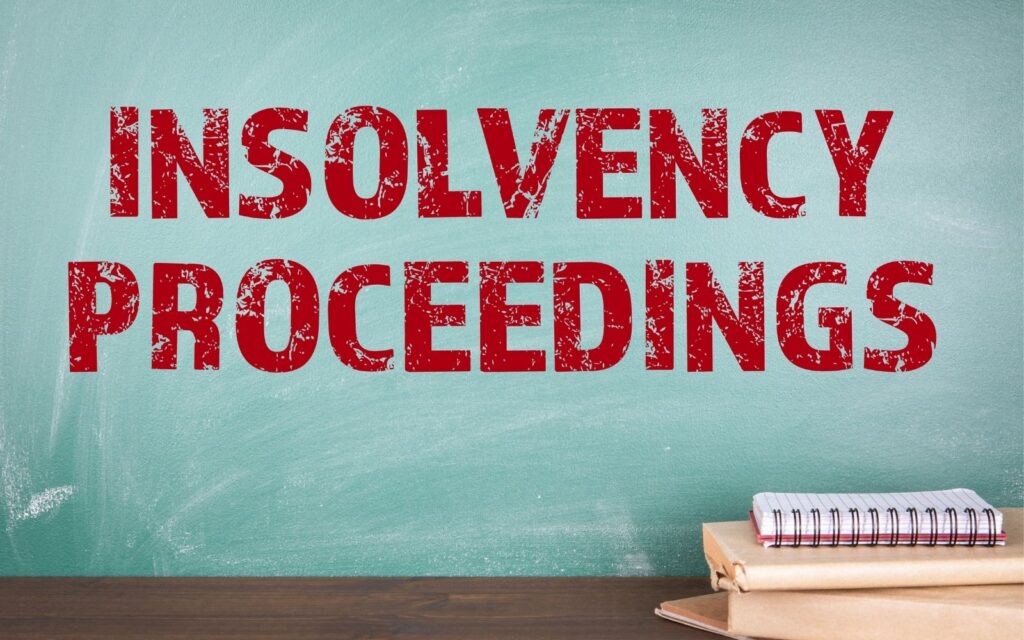
Navigating Financial Challenges: Expertise of Insolvency Lawyers
In times of financial crisis, having the right legal support can make all the difference. Insolvency lawyers are experts in helping individuals and businesses overcome challenging financial situations. Whether you are facing insolvency or want to prevent it, understanding the role of these lawyers is essential.
Understanding the Role of Insolvency Lawyers
Insolvency lawyers specialize in handling legal matters related to insolvency. But what exactly is insolvency? From a legal perspective, insolvency refers to the inability of an individual or business to meet financial obligations. It often leads to bankruptcy or liquidation.
However, the concept of insolvency is not as straightforward as it may seem. It involves a complex assessment of financial circumstances, taking into account the ability to pay debts as they become due. Insolvency lawyers delve deep into financial statements, cash flow projections, and other relevant documents to determine the true financial status of their clients.
See Also: A Comprehensive Property Law Guide
Defining Insolvency: A Legal Perspective
Insolvency, as viewed from a legal perspective, is a multifaceted concept that requires a comprehensive understanding of financial intricacies. It is not merely a matter of being unable to pay debts; rather, it entails a meticulous evaluation of the overall financial health of an individual or business.

Insolvency lawyers employ their expertise to analyze various factors that contribute to insolvency, such as cash flow problems, excessive debt burdens, and declining profitability. By thoroughly examining financial statements and projections, they can provide an accurate assessment of their clients’ financial status.
Key Responsibilities of an Insolvency Lawyer
Insolvency lawyers play a crucial role in guiding individuals and businesses through financial crises. Their expertise extends beyond the courtroom, as they handle a wide range of responsibilities to ensure the best possible outcome for their clients.
- Assessing the financial situation and advising on the appropriate legal actions: Insolvency lawyers meticulously analyze their clients’ financial circumstances, taking into account all relevant factors. Based on their assessment, they provide expert advice on the most suitable legal actions to be taken.
- Representing clients in bankruptcy court proceedings: When insolvency leads to bankruptcy, insolvency lawyers step in to represent their clients in court. They navigate the complex legal procedures, present compelling arguments, and advocate for their clients’ best interests.
- Negotiating debt restructurings and settlements on behalf of clients: Insolvency lawyers possess excellent negotiation skills, which they utilize to secure favorable debt restructurings and settlements for their clients. They work tirelessly to achieve the best possible outcomes and alleviate their clients’ financial burdens.
- Providing legal counsel during the liquidation process: In cases where liquidation becomes inevitable, insolvency lawyers provide invaluable legal counsel. They guide their clients through the intricate process, ensuring compliance with all legal requirements and protecting their clients’ rights and interests.
As you can see, the role of an insolvency lawyer extends far beyond simply handling legal matters related to insolvency. They serve as trusted advisors, advocates, and negotiators, working tirelessly to help their clients navigate the complex and challenging landscape of financial crises.
The Importance of Legal Expertise in Financial Crisis
When facing a financial crisis, it is vital to seek legal expertise to navigate the complexities of insolvency. Insolvency lawyers offer invaluable support throughout the recovery process. They have extensive knowledge and experience in dealing with financial challenges, ensuring that individuals and businesses can overcome their difficulties and regain stability.
How Insolvency Lawyers Facilitate Financial Recovery
Insolvency lawyers are well-versed in the procedures and laws that govern financial recovery. They assist individuals and businesses in developing strategies to regain stability. This includes:
- Structuring debt repayment plans to suit the client’s financial capabilities.
- Negotiating with creditors to reduce debt balances or interest rates.
- Representing clients in court to protect their rights and interests.
- Offering guidance on rebuilding credit and establishing financial stability.
Insolvency lawyers understand that every financial crisis is unique, and they tailor their approach to meet the specific needs of their clients. They work closely with individuals and businesses to assess their financial situation, analyze their debts, and develop a comprehensive plan for recovery. By leveraging their legal expertise, insolvency lawyers provide their clients with the best possible chance of overcoming their financial challenges.
Legal Strategies for Debt Management
Debt management is a critical aspect of overcoming financial challenges. Insolvency lawyers can provide legal strategies to manage debt effectively. These strategies may include:
- Consolidating debts to simplify payments.
- Exploring debt settlement options.
- Filing for bankruptcy if necessary.
Insolvency lawyers understand that managing debt can be overwhelming, especially during a financial crisis. They work closely with their clients to explore all available options and determine the most suitable strategy for debt management. Whether it is consolidating debts to simplify payments or negotiating with creditors for a favorable settlement, insolvency lawyers provide the necessary legal guidance to help individuals and businesses regain control over their finances.
Furthermore, insolvency lawyers stay up-to-date with the latest laws and regulations surrounding debt management. They have a deep understanding of the legal implications and consequences of different debt management strategies, ensuring that their clients make informed decisions. By leveraging their legal expertise, insolvency lawyers help their clients navigate the complex landscape of debt management and find the most effective solutions for their financial challenges.
The Process of Hiring an Insolvency Lawyer
If you find yourself in a financial crisis, it is essential to hire an insolvency lawyer who understands your needs and can provide the right support. Facing insolvency can be a daunting and overwhelming experience, but with the guidance of a skilled lawyer, you can navigate through the complexities of the legal system and find a way to regain control of your financial situation.
When it comes to hiring an insolvency lawyer, there are several important steps to consider. These steps will help you identify your financial needs, select the right lawyer for your situation, and ultimately pave the way for a successful resolution to your insolvency issues.

Identifying Your Financial Needs
Before hiring an insolvency lawyer, it is crucial to assess your financial needs carefully. Take the time to evaluate your current financial situation, including your debts, assets, and income. Determine what specific challenges you are facing and what outcomes you hope to achieve. Are you struggling with overwhelming credit card debt? Are you facing foreclosure on your home? Are you considering bankruptcy as a last resort? Understanding your needs will help you find a lawyer who specializes in your particular situation.
Additionally, it is important to consider the emotional toll that insolvency can have on you and your loved ones. Dealing with financial difficulties can be incredibly stressful and can impact your mental well-being. A compassionate and understanding lawyer can provide the emotional support you need during this challenging time.
Selecting the Right Insolvency Lawyer for Your Situation
Choosing the right insolvency lawyer is a crucial decision that can significantly impact the outcome of your case. When making your selection, consider the following factors:
- Experience: Look for lawyers with substantial experience in handling cases similar to yours. An experienced lawyer will have a deep understanding of the insolvency laws and regulations, as well as the strategies and tactics necessary to achieve the best possible outcome for your situation.
- Reputation: Research the lawyer’s reputation and track record with previous clients. Look for testimonials or reviews from individuals who have worked with the lawyer in the past. A lawyer with a solid reputation for professionalism, integrity, and successful outcomes is more likely to provide you with the high-quality representation you deserve.
- Communication: Ensure the lawyer communicates clearly and keeps you informed throughout the process. Effective communication is essential in any legal matter, and it is particularly crucial when dealing with insolvency. You should feel comfortable asking questions, expressing concerns, and receiving updates on the progress of your case.
- Cost: Discuss the lawyer’s fees upfront and consider your budget. While cost should not be the sole determining factor in your decision, it is important to have a clear understanding of the financial implications of hiring a particular lawyer. Some lawyers may offer flexible payment plans or alternative fee arrangements, so be sure to explore all options before making a final decision.
By carefully considering these factors and conducting thorough research, you can increase your chances of finding the right insolvency lawyer who will advocate for your best interests and guide you towards a brighter financial future.
The Impact of Insolvency Laws on Businesses and Individuals
Insolvency laws have significant implications for both businesses and individuals. Understanding these consequences is vital in navigating the complexities of financial crisis.
Insolvency is a distressing situation that can have far-reaching effects on businesses and individuals alike. It is a state where an entity or individual is unable to pay off their debts, leading to potential closure, loss of assets, legal actions, and damage to reputation.
The Consequences of Insolvency for Businesses
When a business becomes insolvent, it faces various consequences, including:
- Potential closure or liquidation.
- Loss of assets and investments.
- Legal actions from creditors.
- Damage to reputation and customer trust.
When a business is unable to meet its financial obligations, it may result in the closure or liquidation of the company. This can have a devastating impact on the business owners, employees, and stakeholders. Jobs may be lost, and the economic ripple effect can be significant.
Furthermore, insolvency often leads to the loss of assets and investments. Creditors may seize and sell off these assets to recover their debts, leaving the business with little or no resources to continue its operations. This can be particularly challenging for businesses that rely heavily on physical assets, such as manufacturing companies or retail stores.
Legal actions from creditors are also a common consequence of insolvency. Creditors may take legal action to recover their debts, which can result in court proceedings, judgments, and potential enforcement actions. These legal battles can be costly and time-consuming, further adding to the financial burden faced by the insolvent business.
Moreover, insolvency can have a detrimental effect on a business’s reputation and customer trust. News of financial difficulties can spread quickly, leading to a loss of confidence from suppliers, customers, and other stakeholders. This loss of trust can be challenging to recover from, even if the business manages to overcome its insolvency and continue its operations.
Personal Insolvency: What It Means for Individuals
Personal insolvency can have severe implications for individuals. These may include:
- Loss of assets, including homes and vehicles.
- Legal actions and judgments.
- Negative impact on credit scores and future borrowing capabilities.
- Potential impact on employment prospects.
When an individual faces personal insolvency, they may be at risk of losing their assets, including their homes and vehicles. These assets may be seized and sold off to repay creditors, leaving the individual in a vulnerable position and potentially without a place to live or means of transportation.
Legal actions and judgments are also common consequences of personal insolvency. Creditors may pursue legal action to recover their debts, resulting in court proceedings and potential judgments against the individual. These legal battles can be emotionally and financially draining, further exacerbating the individual’s financial distress.

Furthermore, personal insolvency can have a long-lasting impact on an individual’s credit scores and future borrowing capabilities. When an individual becomes insolvent, it becomes challenging for them to obtain credit or loans in the future. This can hinder their ability to make significant purchases, such as buying a home or starting a business, and can have a lasting impact on their financial stability.
Lastly, personal insolvency can potentially impact an individual’s employment prospects. Some employers may view a history of insolvency as a red flag, raising concerns about the individual’s financial responsibility and stability. This can make it difficult for the individual to secure employment or advance in their career.
In conclusion, insolvency laws have profound implications for both businesses and individuals. The consequences of insolvency can be far-reaching, affecting not only financial stability but also reputation, assets, and future opportunities. It is crucial for businesses and individuals to seek professional advice and explore all available options when facing insolvency to mitigate the potential negative impact.
Future Financial Planning: The Role of Insolvency Lawyers
Engaging the services of an insolvency lawyer not only helps address immediate financial challenges but also plays a crucial role in future financial planning.
Preventive Measures Against Financial Crisis
Insolvency lawyers offer valuable advice on preventive measures to mitigate the risk of financial crisis. They can help individuals and businesses:
- Create realistic budget and financial plans.
- Identify potential risks and develop contingency strategies.
- Establish efficient debt management systems.
Long-term Financial Strategies with Legal Assistance
An insolvency lawyer can assist individuals and businesses in developing long-term financial strategies. These strategies may include:
- Investment diversification to minimize risk exposure.
- Establishing emergency funds and savings accounts.
- Regular financial check-ups to assess progress and make necessary adjustments.
In conclusion, insolvency lawyers play a critical role in navigating financial challenges. Whether you require immediate legal assistance or want to plan for a secure financial future, engaging the expertise of an insolvency lawyer can make all the difference.
